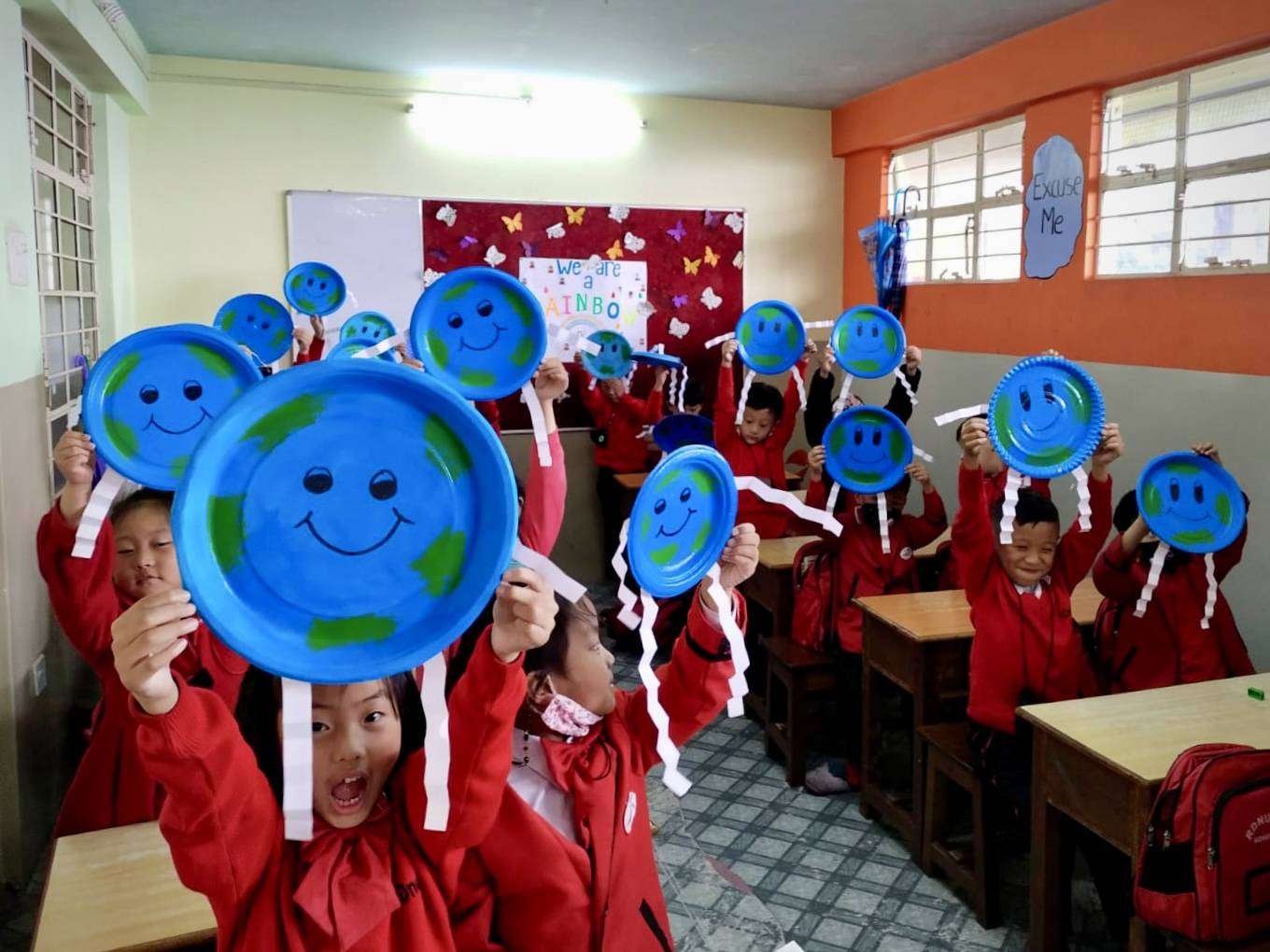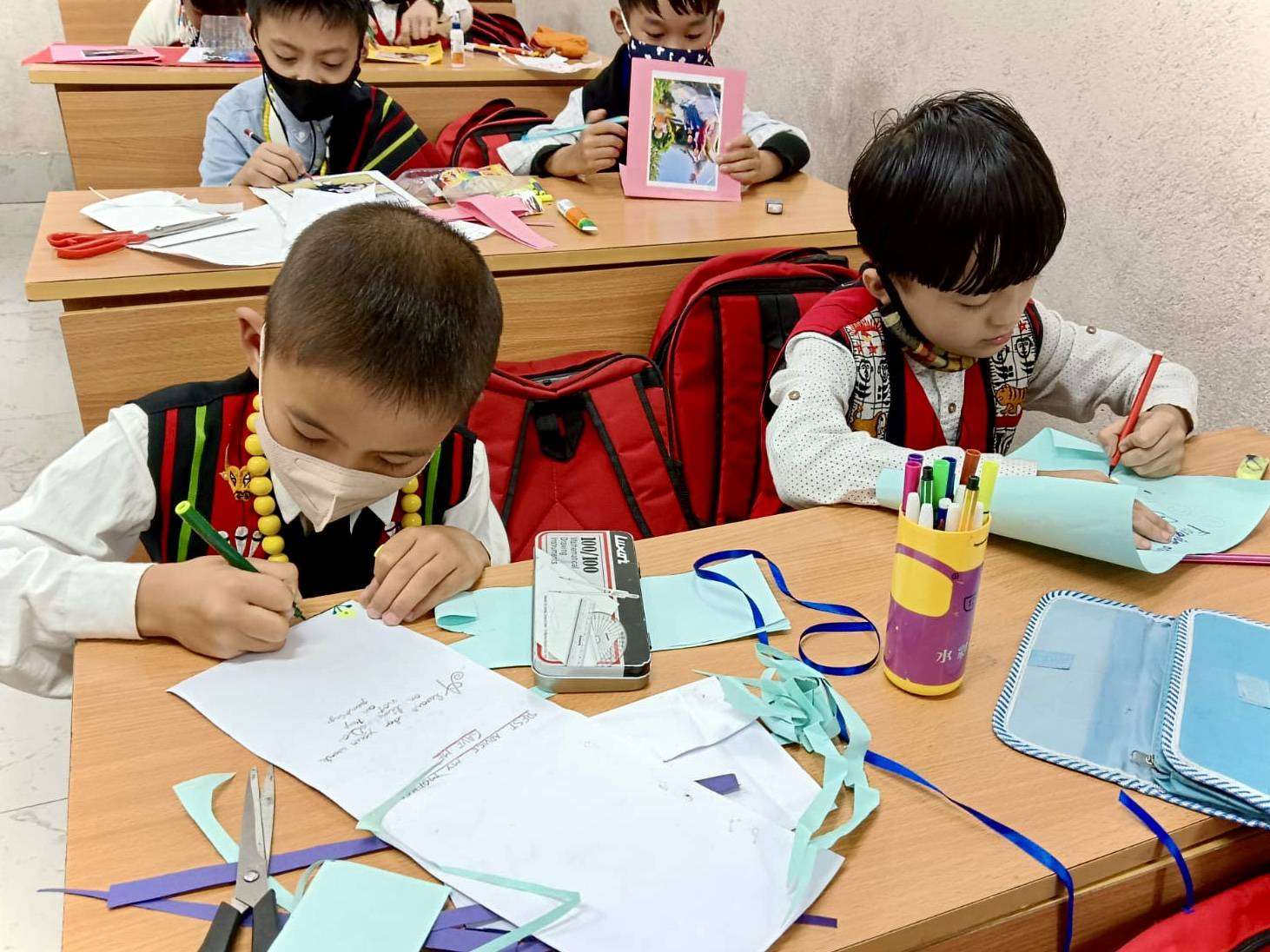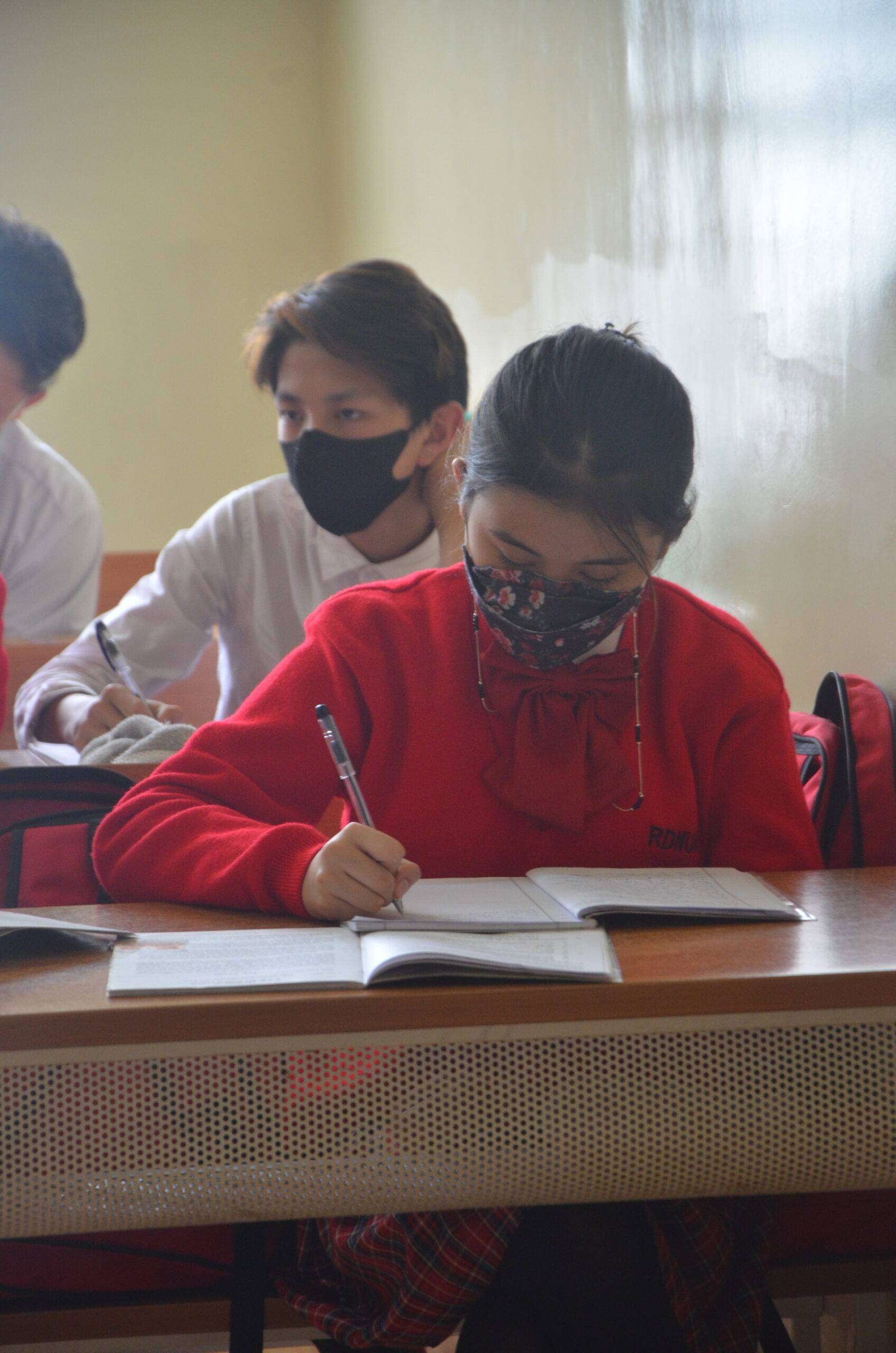RDNUMS prepares an exciting program that explores children’s creativity and imagination. We follow a broad and balanced curriculum providing students the opportunity to acquire a wide range of knowledge, skills and understanding according to their individual needs and academic abilities. Through a stimulating and challenging curriculum, alongside extracurricular activities offered to all pupils, we encourage all our learners to enjoy and achieve their full potential at school.

Our pre-primary education is based on the Montessori system where all students are presented with endless opportunities to develop their senses.
Montessori education aims to help every child develop essential skills already within him/her to master the creative learning process not only in school but also in life. It gives a foundation for all of their academic achievement. Montessori education is child-centered and follows the individual child’s interest in a sufficiently supportive and well-prepared learning environment which encourages and expands the learner’s sense of wonder and curiosity.
In the Montessori classroom children are given freedom within certain limits. Children are free to work at their own pace. The teacher presents new activities, which help the child develop individual mastery and collaborate with the whole group providing a family like grouping where children learn naturally. The classroom conversations provide language experiences leading to language development. The child learns concentration, self-discipline, sense of order, creative self-expression, love of learning and above all, the desire to complete the task.
These are a key element in the environment, as the child learns the materials, many of which are self-correcting, rather than directly through the teacher. The role of the teacher in the Montessori classroom is different from that of the traditional teacher. The Montessori teacher first observes the child to ascertain his/her interests and developmental level, and then gently directs the child towards appropriate activities so that she/he learns for him/herself through the environment and through the specially designed educational materials.
Montessori tool can be grouped into 5 areas of activities:
In the Practical Life area, children carry out familiar home activities, such as sweeping, polishing, dusting, pouring, preparing foods, etc. These activities are designed to help the child achieve independence and confidence through meaningful activity with real life objects; they help develop coordination, concentration, independence, hand dexterity, care of one’s self and environment, patience and grace and courtesy.
The Sensorial Material allows the child to understand his environment while learning through his senses. Each piece of material has one isolating quality, such as colour, weight, size, shape, texture, sound, smell, etc., which enables the child to take in impressions with true understanding and gives purpose, order and structure to his/her learning. Montessori materials are didactic and allow the child to see his/her mistakes and correct them, which develops perseverance and a positive self-image and attitude towards mistakes.
Many activities are designed to proceed naturally towards the development of skills for reading and writing. The child first learns the phonetic sound of the letters, which leads to Building short phonetic words, he/she progresses at his/her own pace to reading longer phonetic words and is finally introduced to the different parts of grammar.
The child is introduced to Mathematics through the use of concrete materials. By working with the specially designed materials, he/she learns the physical quantities and matching abstract symbols. The child always works from the concrete to the abstract. By working with concrete materials, the child can see and understand the operations of Addition, Multiplication, Subtractions and Division. A solid foundation is formed for Algebra and Geometry through working with concrete materials.
We introduce the children to Cultural subjects (Environmental Studies, Geography, History, Botany, Zoology, Science, Music and Art) to help feed their imagination and understanding of the real world during the time that they are most sensitive to them, which enables them to understand their role and the fact that they are part of it.

Primary education at RDNUMS ensures broad-based learning of the child which includes the development of social, cognitive, cultural, emotional, and physical skills. It is the foundation for further education as it forms the lives of children by promoting their decision-making skills.
As students venture into High School, life can be very tumultuous for young learners as it is a transitional period. Keeping some set goals in perspective, the school has designed a scalable syllabus and prepared individual lesson plans which aim to

Secondary Education is the continuing of education after the completion of Basic Education in Primary/Upper-Primary Level. It helps a student to enhance independent learning skills, set goals and achieve them. It also helps students to develop individual responsibilities as it is designed to give skills and knowledge needed to succeed in life. Secondary Education also paves the way for students to have a better idea of what career paths they should choose.